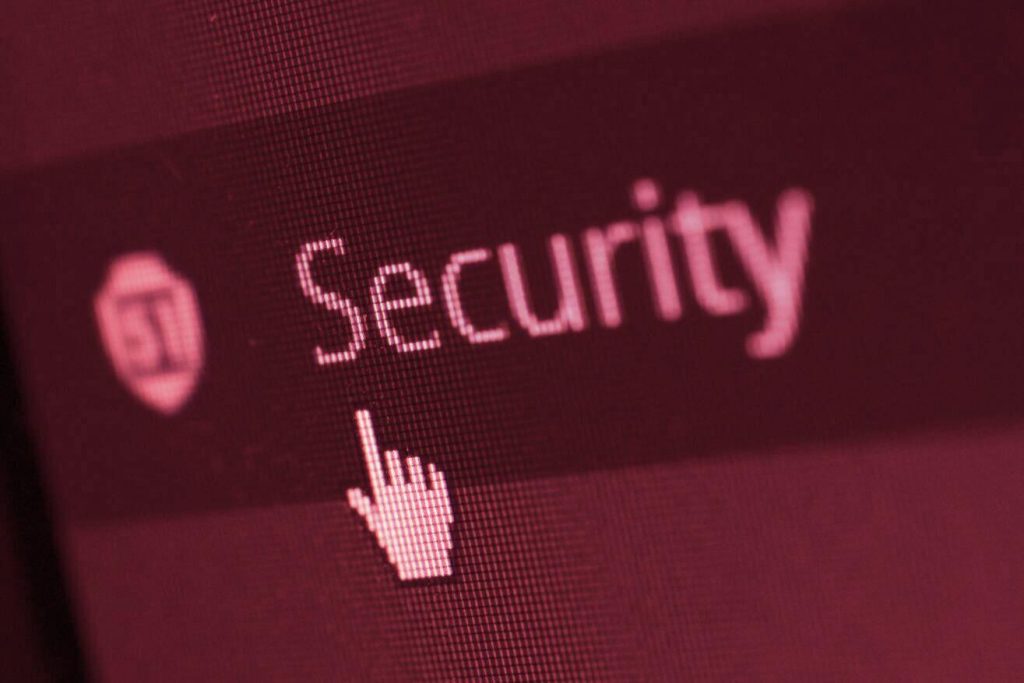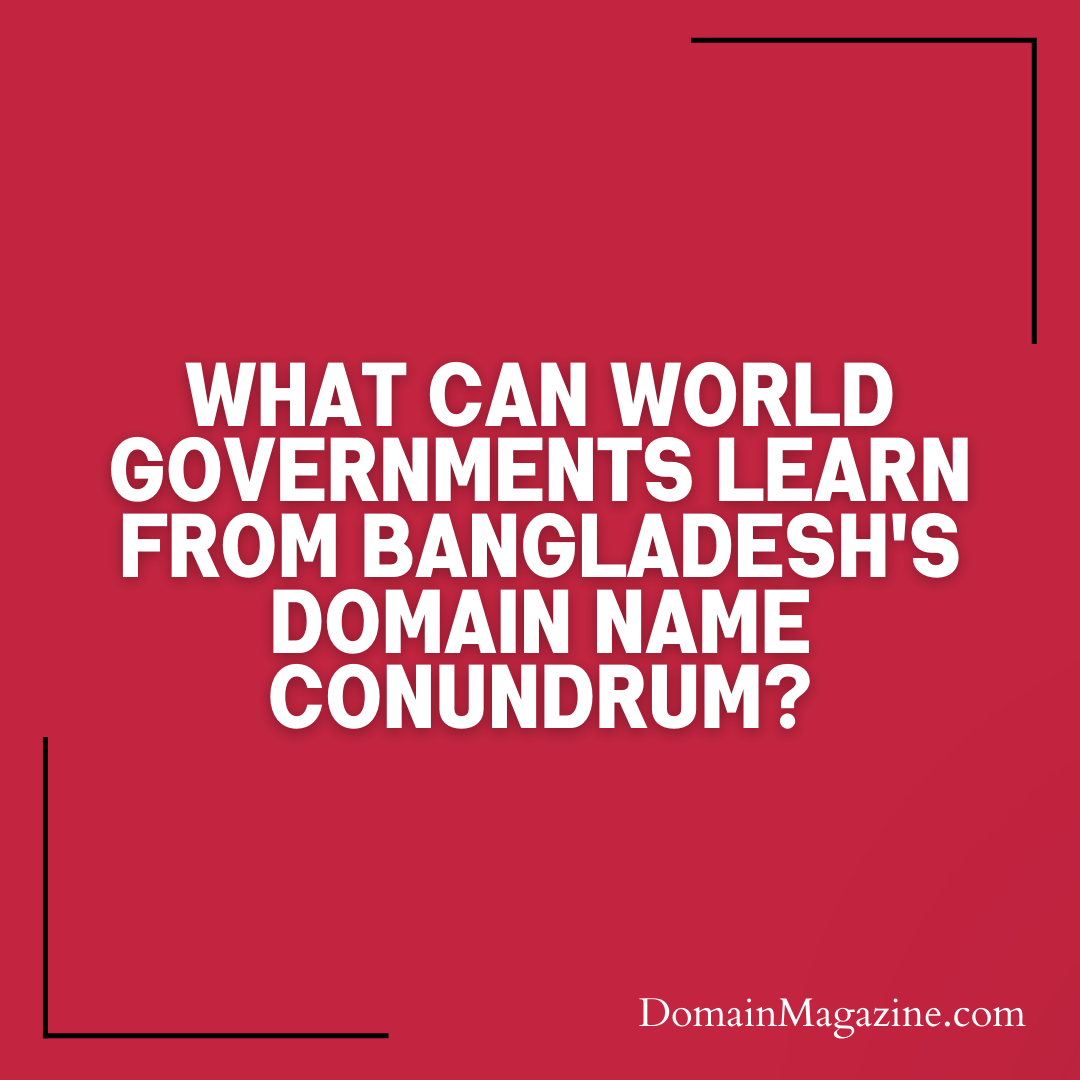In today’s digital age, government websites are often our first stop for crucial information, services, and interactions with the authorities. But have you ever wondered why some of these websites trigger warning messages like, “The connection to www.example.gov.bd is not secure. You are seeing this warning because this site does not support https“?
In Bangladesh, these messages have raised concerns, highlighting the lack of SSL certificates on government portals and prompting the question: What can the world’s governments learn from Bangladesh’s domain name conundrum?
Let’s delve into this issue and explore why these warning messages matter and how SSL certificates provide a crucial solution to the problem.

Understanding the Warning Messages
When you encounter a message like “The connection is not secure,” it’s your browser’s way of saying, “Proceed with caution.” It means that the website you’re trying to access lacks the essential security feature known as SSL, or Secure Sockets Layer. These messages serve as a digital red flag, warning users that their data and privacy might be at risk.
The SSL Certificate: Your Online Padlock
So, what is this SSL certificate that makes such a difference? Picture it as the online equivalent of a padlock on your door, safeguarding your valuables. SSL certificates create encrypted connections between your web browser and the websites you visit, ensuring that your data remains private and secure. When a website uses an SSL certificate, its URL starts with “https,” not just “http,” and a reassuring padlock icon appears in your address bar.
The Significance for Government Portals
In Bangladesh, the absence of SSL certificates on government websites is not just a technicality; it’s a cybersecurity concern of monumental proportions. Without encryption, user data can be exposed to interception, hacking, and malicious actors. This isn’t just about protecting data; it’s about safeguarding user privacy, which is paramount, especially when dealing with sensitive government information and transactions.
The Real Numbers
The impact of this issue in Bangladesh is felt on a colossal scale. According to a national portal implementation specialist, a staggering 70,000 users enter national portals every 30 minutes. These users, perhaps unaware of the risks, might be putting their data in jeopardy due to the lack of secure connections.
The Solution: SSL Certificates
The solution to these warning messages is clear: SSL certificates. These certificates are not just an added luxury but an absolute necessity for government websites, ensuring the safety of user data and privacy.

Why SSL Certificates Are Missing
There are a few reasons why SSL certificates are absent from some government websites in Bangladesh. Firstly, some websites don’t have the certificates installed. Others may have certificates that have expired and need renewal. The domain name used to access the site might not match the Subject Distinguished Name (DN) on the SSL certificate, triggering those pesky warnings.
A real-world example can help illustrate the issue. If you searched for the Ministry of Law and Justice website on Google Chrome in Bangladesh, you might receive a “not secure” warning, even if the SSL certificate was valid. The solution? Remove the “www” from the URL, and suddenly, you’re in.
The Cost of SSL Certificates
One major roadblock to securing all government websites with SSL certificates is the cost. Obtaining SSL certificates can vary in price, ranging from as low as $10 to $1,000 annually. But here’s the catch: the price difference doesn’t necessarily correlate with the level of security provided.
To equip all Bangladeshi government websites with SSL certificates, an enormous number of certificates would be needed. That translates to significant costs, which can be a hefty burden for any government. Moreover, it’s not just about getting the certificates; it’s also a matter of managing and renewing them.
A Global Lesson
The transition from HTTP to HTTPS is an essential step toward enhancing online security. It’s not an overnight process but a gradual one, which requires time and resources. A phased approach is the key to ensuring that all government websites eventually become secure.
What can governments around the world learn from Bangladesh’s experience?
- Security is Paramount: Governments must prioritize the security of their websites to protect user data and privacy. SSL certificates are a fundamental part of this security.
- Mobile Accessibility: Recognize the importance of mobile accessibility, as many users access government portals via their smartphones. Ensuring a seamless mobile experience is crucial.
- A Smooth Transition: The transition to HTTPS may take time and resources. Governments should execute it in phases to ensure all websites are eventually secured.
- Cost-Effective Solutions: Obtaining SSL certificates for numerous websites can be costly. Governments should explore cost-effective options like wildcard certificates to cover subdomains.
In conclusion, the warning messages seen on government websites in Bangladesh serve as a wake-up call for governments worldwide. The issue is not just about SSL certificates but about safeguarding user data and privacy. Bangladesh’s experience underscores the global importance of website security, emphasizing that, in our interconnected world, cybersecurity knows no boundaries.


Join the Discussion